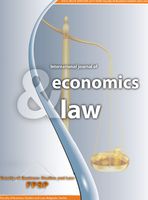Creative Imitation-risk Or Opportunity?
Creative Imitation-risk Or Opportunity?
Author(s): Milan Radosavljević, Iryna Syngaivska , Karl SchopfSubject(s): Economy
Published by: Fakultet za poslovne studije i pravo
Keywords: creative imitation copycats
Summary/Abstract: It is known that one starting from the first day to the present day succeeded in his work, thanks to continuous innovation and introduction of new technologies, organizational solutions and new approaches in general and philosophy. This is one of the most influential forces that have had a major impact on the overall social development and progress. Had man not innovated, he would remain at the level of the animals up to the present day. While innovation and new inventions rise to the level of the determining factors of success, yet imitation, as a creative process is neglected or underestimated, and in some cases considered to be immoral, illegal and harmful phenomenon. Copycats are often considered plagiarists who live at the expense of innovators, which resulted in the introduction of a number of protections, even at the global level. A deeper analysis show and prove that creative imitation is by its importance, if not more important, then certainly at the level of innovation. Given that there are centuries of misunderstandings and controversies regarding these issues, this article aims to shed light on the broader context of this issue and point out that creative imitation is not meaningless copying and plagiarism, or the repetition of something bigger there, but it is a smart quest for improved functional and other characteristics of products or services, as the final results of any organization. The aim of the paper is not to provide definite answers to this problem, since there are no final answers, nor there can be, but to encourage a different way of thinking.
Journal: International Journal of Economics & Law
- Issue Year: 4/2014
- Issue No: 10
- Page Range: 103-108
- Page Count: 6
- Language: English

